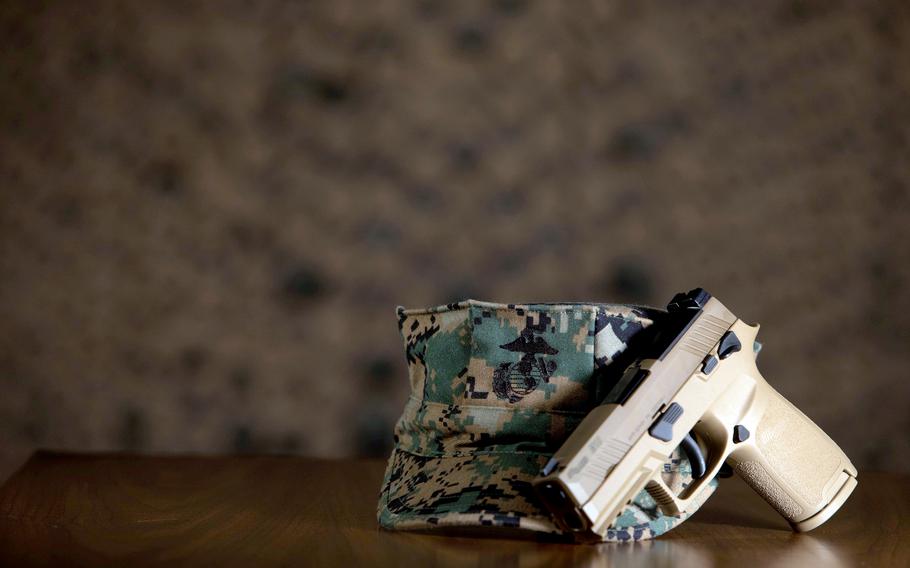
Suicide remains a stubborn issue for the U.S. military. Last year, 62 Marines were among 363 active-duty service members who took their own lives, according to the Defense Suicide Prevention Office. (Brian Knowles/U.S. Marine Corps)
The Marine Corps is seeking feedback from active-duty troops about its programs to remove or secure the objects that facilitate suicide.
The service released a survey on Jan. 13 seeking Marines’ comments on currently available “lethal means” safety programs and “preferences for safety devices and storage locations,” according to a Marine Corps administration message issued that day.
Suicide remains a stubborn issue for the U.S. military. Last year, 62 Marines were among 363 active-duty service members who took their own lives, according to the Defense Suicide Prevention Office.
The Pentagon in November reported an active-duty suicide rate in 2023 of 28 suicide deaths for every 100,000 service members. That was a 12% increase over the previous year. The report was calculated based on an active-duty force of 1.28 million troops.
“Lethal means safety” refers to programs designed to remove access to objects that can be used to inflict self-harm, such as firearms, sharp objects, other weapons or medication, according to the Department of Veterans Affairs and the Suicide Prevention Office.
The voluntary survey is open to all active-duty Marines and Marines on active-duty operational support orders and aims to “to gauge awareness and preferences in messaging, safety devices, and location,” U.S. Marine Corps Headquarters’ Manpower and Reserve Affairs spokeswoman Maj. Melissa Spencer told Stars and Stripes by email Thursday.
“Survey results will enable us to tailor suicide-prevention efforts and develop messaging and programs that will be most relevant and impactful to our Marines, Sailors, and families,” she wrote.
The survey, which closes Jan. 31, is part of a larger effort by the Suicide Prevention Office to assess the effectiveness of its outreach and education on suicide prevention and lethal means safety, Spencer said.
The service is aiming to develop “a tailored lethal means safety plan,” she said.
“Results from this study will inform policies, programs, and practices to improve lethal means safety practices for Marines and inform prevention efforts,” Spencer said.
A timeline for any improvements or changes to programs and outreach will be developed based on the results of the survey, Spencer wrote in a follow-up email Friday.
The survey should take less than 15 minutes and is anonymous, according to the announcement.
Defense Department suicide prevention efforts can be found at https://www.dspo.mil, and the Marine Corps also offers information on suicide prevention at www.usmc-mccs.org/news/keep-calm-and-carry-on-safely, Spencer wrote.
Among other resources, the websites have information about suicide hotlines, counseling referrals and tips for securing firearms via cable locks, lock boxes, gun safes and cases.
“Suicide prevention efforts remain a top priority for the Marine Corps, and prevention efforts are ongoing to ensure the Marine Corps is implementing the best ways to support Marines, Sailors, and their families,” Spencer said Friday.